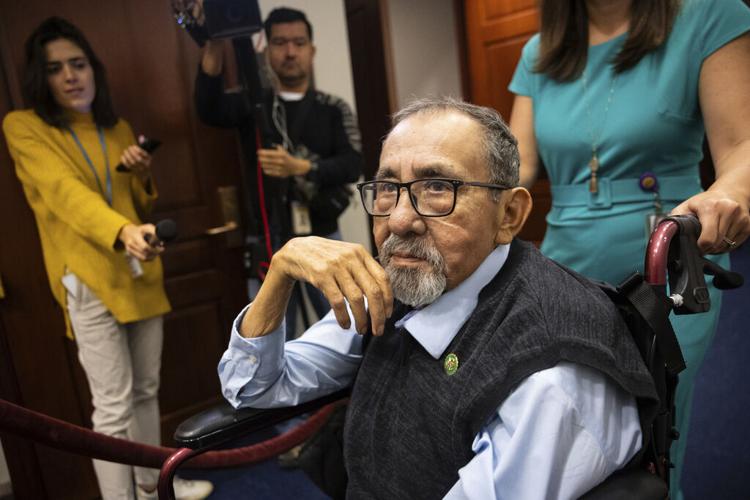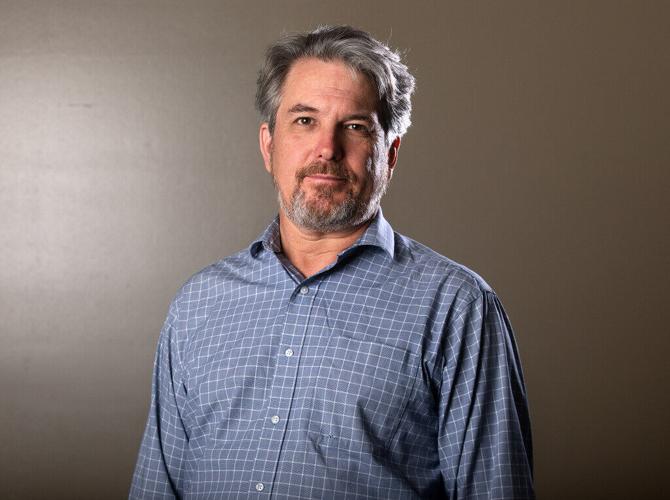Of course we would want to shut down “terrorist supporting organizations,” right?
Sounds sensible, but a small wave of opposition rose before the U.S. House voted on H.R. 9495, the “Stop Terror-Financing and Tax Penalties on American Hostages Act.”
The bill would give the Treasury Department the right to revoke the non-profit status of any group that they determine to be a “terrorist-supporting organization.” Which sounds reasonable — until you consider who’s coming into the White House and how he might use that power.

Arizona Daily Star columnist Tim Steller
Not just pro-Palestinian activists, but nonprofit news outlets, charities working overseas and religious groups could potentially be targeted and accused of “supporting terrorism.” The ACLU raised a last-minute surge of opposition in the fall, but when it came down to a vote Nov. 21, the House passed the bill 219-184, moving it to the Senate, which has not acted on it.
Our own, Tucson-area representatives, Democrat Raúl Grijalva and Republican Juan Ciscomani, split on the bill. Ciscomani voted yes, and in his 10th vote in the House after returning to the U.S. Capitol from cancer treatment here, Grijalva voted no. It was also the last day he has cast votes in the House.
These are the kind of votes that, I suspect, will help shape the effects of the Trump presidency. It’s unclear, though, who among our Tucson congressional representatives will rein him in and ensure he doesn’t use the government’s powers to go after “the enemy from within” as he termed his opponents, exact revenge, as promised during the campaign, or seize spending power from Congress.
The situation is especially worrisome in the House, where Republicans have a slim 220-215 advantage. Neither of our representatives, Grijalva nor Ciscomani, can be counted on now to cast the votes that will ensure Trump’s worst instincts don’t become law.
Ciscomani
As a Republican, Ciscomani can be expected to vote with Trump most of the time. That’s natural, even for a congressman who boasted during his last campaign about his bipartisanship.
But he ought to be casting a few well-considered votes to help limit Trump’s exercise of power to the normal presidential bounds, not enable the “unitary executive theory” that would remove the checks on presidential power. It’s in Ciscomani’s interest, in the interest of Congress as a body, and in ours.
Ciscomani, the Tucsonan who cut his teeth as a top aide to Gov. Doug Ducey, comes from the business-oriented faction of the Republican Party, not the dominant MAGA wing.

U.S. Rep. Juan Ciscomani, (R-Ariz.)
And yet, he has won the last two primary elections, against MAGA competition, handily. In 2022, Ciscomani vanquished a group of more right-wing competitors, beating his nearest competition by 26 percentage points, 47.1 % to Brandon Martin’s 20.9 %.
This year, Ciscomani beat Kathleen Winn, who criticized him for being insufficiently conservative, by nearly a 20-point margin, 59.2% to 40.7%. Winn is now the chair of the Pima County Republican Party. Although a sustained attack from Trump himself could change the picture, primaries do not appear to be Ciscomani’s problem.
On the other hand, in 2022, Ciscomani beat Democrat Kirsten Engel by 1.5 percentage points, 50.7 % to 49.2%. This year, he beat Engel by 2.5 percentage points, 50 % to 47.5%. Undoubtedly a new Democrat will take him on in 2026.
Take these numbers, and factor in the pattern that the opposition party — now, the Democrats — usually wins big in mid-term elections, and it seems like Ciscomani’s greater threat in 2026 comes not from a GOP primary challenger but in the general election from a Dem.
Still, Ciscomani appears set to go with Trump on some key votes. Last week, he was the only member of Arizona’s delegation in the House to vote for a bill Trump supported to fund the government and raise the debt ceiling. That bill failed Thursday before another one passed on Friday.
He also joined the DOGE Caucus, dedicated to implementing the recommendations of the “Department of Government Efficiency” advisory group, led by Elon Musk and Vivek Ramaswamy.
There’s nothing wrong — and plenty right — with looking for ways to cut government waste. The questions are whether Ciscomani will vote to cut spending that actually protects or helps us — on consumer protection, for example — and whether he’ll let Trump seize greater control of the congressional power of the purse.
Trump’s campaign and supporters have previously supported the president restricting spending he doesn’t like through “impoundment,“ an obscure legal theory that argues presidents can wrest away Congress’ control over federal spending.
That would take Congress’ most important power and put it in the hands of one mercurial man.
Grijalva
Grijalva announced in April that he had returned home to Tucson for cancer treatment. After months of treatment and then winning re-election, he made it back to Washington, D.C., in November. It was a good sign.
Grijalva cast votes 11 votes over three days, Nov. 19 to Nov. 21, but has not voted since then, missing dozens of votes on top of the hundreds he missed while home receiving cancer treatment.
Grijalva has also announced he will not remain as the leading Democrat on the House Natural Resources Committee, a committee he once chaired.
We know that that as long as he is on the floor, he will vote to check Donald Trump’s power.
“My colleagues and I will take any appropriate measures to curtail Trump’s worst impulses and potential abuses of power, as we did during his previous term,” he said in a Dec. 13 email. “He has repeatedly shown himself to be willing to break the law to achieve his own ends and enrich himself.”

U.S. Rep. Raúl Grijalva (D-Ariz.)
But it’s unclear how many votes Grijalva will cast, or how long he will be at the Capitol.
“I am grateful to have been overwhelmingly re-elected by the voters in CD7 and plan to continue to serve them in the 119th Congress,” Grijalva said. “I was excited to get back to Washington last month to lead bills on the floor and chair hearings, and I am continuing to work with my physical therapist to regain strength to prepare for the upcoming session.”
If Grijalva were to step down more than six months before the next general election, the governor would have to set a primary election within about four months, and a general election about two months after that. In other words, stepping down would mean another long vacancy, at least six months, from the seat representing Tucson’s south and west sides.
That matters in a narrowly divided House facing a president who will take as much power as he can get from them, whether that’s seizing their spending power or cracking down on nonprofits by calling them “terrorist-supporting organizations.”






